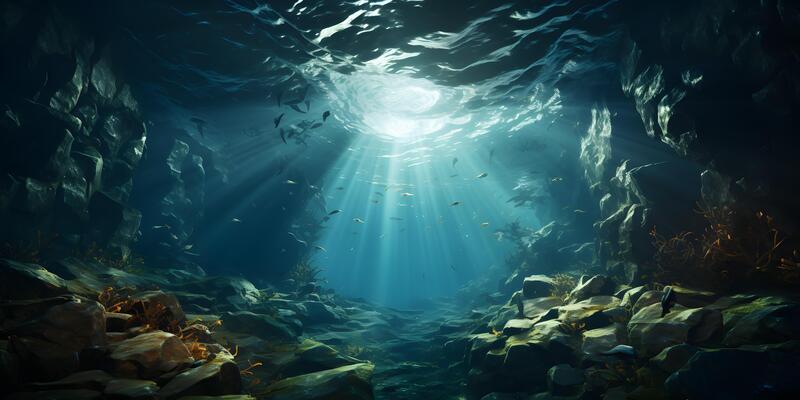
Plymouth, United Kingdom (Enmaeya News) — As climate change reshapes the planet, new research from the University of Plymouth reveals a disturbing sign: Earth’s oceans are getting darker.
The study, published in May, found that 21% of the global ocean surface became significantly darker between 2003 and 2022 — including many major coastal areas. The trend, scientists warn, is more than a shift in watercolor. It reflects serious disruptions in ocean ecosystems, potentially threatening marine biodiversity, food security, and even the planet’s ability to regulate climate.
Less Light, More Trouble
Ocean darkening reduces the depth of the photic zone — the sunlit upper layer of the ocean where photosynthesis occurs. This zone is crucial for the survival of nearly 90% of marine life, from microscopic plankton to large fish, and is responsible for producing roughly half the oxygen we breathe.
“When oceans darken, less light reaches marine organisms that rely on it for photosynthesis and survival,” said Thomas Davies, associate professor of marine conservation at the University of Plymouth. “That not only affects life in the sea, but life on land, too.”
According to the study, more than 9% of the ocean’s surface — equal to around 32 million square kilometers, roughly the size of Africa — saw photic zone depths decrease by over 50 meters. In 2.6% of the ocean, the decrease exceeded 100 meters.
What’s Causing the Darkening?
The causes vary depending on location. In coastal regions, rainfall often washes soil, plant matter, and other debris from land into the sea. This increases water cloudiness, blocking sunlight.
In the open ocean, rising temperatures have led to more frequent and intense algal blooms. These blooms can reduce oxygen levels and further dim the water. Additionally, higher concentrations of plankton, suspended particles, and other light-absorbing matter limit how far sunlight can travel underwater.
The result? Shrinking habitats for organisms that depend on light — and rising competition among species for limited food and space.
“If light levels continue to drop, marine life will be pushed toward the surface, where they’ll face even fiercer competition for resources,” said Tim Smith of Plymouth Marine Laboratory. “That could reshape the entire marine food web.”
A Global Pattern
The most significant losses in photic zone depth were recorded near the Arctic and Antarctic, and along the Gulf Stream — areas already vulnerable to the impacts of climate change.
In Europe, darker waters were observed in the North Sea, the Celtic Sea, the eastern coasts of England and Scotland, and around Wales and Northern Ireland.
These changes add up to what researchers are calling one of the largest habitat losses on Earth over the last two decades.
Bigger Than Biodiversity
The darkening of oceans has consequences beyond marine ecosystems. It could weaken one of the ocean’s key roles in fighting climate change: storing carbon.
Phytoplankton absorb carbon dioxide from the atmosphere through photosynthesis. When they die, some of this carbon sinks to the ocean floor, effectively removing it from the climate system. But if light levels drop too low, plankton populations decline — meaning less CO₂ is absorbed and less oxygen is produced.
“Oceans are the lungs of our planet,” Davies said. “We rely on them for air, for food, and for climate stability. If they’re in trouble, we’re in trouble.”
A Warning Sign
The findings raise alarms not only for scientists but for global policymakers. Ocean ecosystems are already under stress from overfishing, pollution, and warming waters. Now, with shrinking photic zones and increased competition for food and space, species are being pushed into smaller and smaller habitats.
“The darkening of oceans could destabilize marine food chains, shift where species live, and weaken the ocean’s ability to support life,” said Oliver Zielinski, director of the Leibniz Institute for Baltic Sea Research in Germany.
In a time when the health of oceans is tied directly to human well-being, the message is clear: the world’s waters are changing — and fast.



